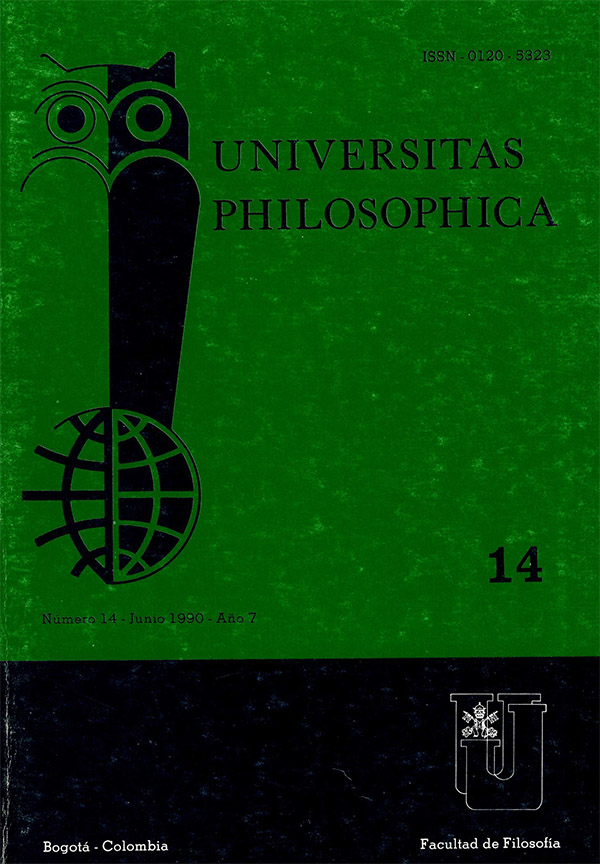Resumo
El presente artículo no pretende hacer una exposición completa ni una tipificación ni tampoco una reflexión crítico-valorativa del pensamiento filosófico de Andrés Bello, aunque por la dinámica misma de su propósito fundamental, algo de todos estos elementos hayan de aparecer, aquí y allá, a lo largo del texto. Se quiere primordialmente aproximar al lector a la estructura fundamental de la Filosofía del Entendimiento y a algunos aspectos particulares que nos han llamado la atención en esta obra considerada esencial para una correcta comprensión de buena parte de los fundamentos teóricos de toda la producción de Bello. En busca de este objetivo nuestra exposición sigue, en líneas generales, el orden de la primera parte (Psicología Mental) de la obra mencionada dejando hablar directamente al autor en abundantes citas textuales. Tras un breve recorrido biográfico y algunas consideraciones generales sobre el pensamiento filosófico de Bello, se adelantan algunas ideas básicas sobre el concepto central de Percepción, se exponen las caracaterísticas de cada uno de los tres tipos fundamentales de percepción, se aborda el tema de las Ideas y el de los Principios a priori del entendimiento y se esbozan otras temáticas particulares sobre el lenguaje y sobre el idealismo que pueden aparecer hoy como de bastante actualidad.
Esta revista científica se encuentra registrada bajo la licencia Creative Commons Reconocimiento 4.0 Internacional. Por lo tanto, esta obra se puede reproducir, distribuir y comunicar públicamente en formato digital, siempre que se reconozca el nombre de los autores y a la Pontificia Universidad Javeriana. Se permite citar, adaptar, transformar, autoarchivar, republicar y crear a partir del material, para cualquier finalidad (incluso comercial), siempre que se reconozca adecuadamente la autoría, se proporcione un enlace a la obra original y se indique si se han realizado cambios. La Pontificia Universidad Javeriana no retiene los derechos sobre las obras publicadas y los contenidos son responsabilidad exclusiva de los autores, quienes conservan sus derechos morales, intelectuales, de privacidad y publicidad.
El aval sobre la intervención de la obra (revisión, corrección de estilo, traducción, diagramación) y su posterior divulgación se otorga mediante una licencia de uso y no a través de una cesión de derechos, lo que representa que la revista y la Pontificia Universidad Javeriana se eximen de cualquier responsabilidad que se pueda derivar de una mala práctica ética por parte de los autores. En consecuencia de la protección brindada por la licencia de uso, la revista no se encuentra en la obligación de publicar retractaciones o modificar la información ya publicada, a no ser que la errata surja del proceso de gestión editorial. La publicación de contenidos en esta revista no representa regalías para los contribuyentes.


